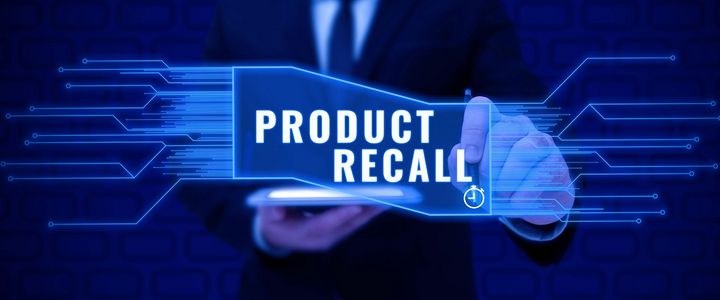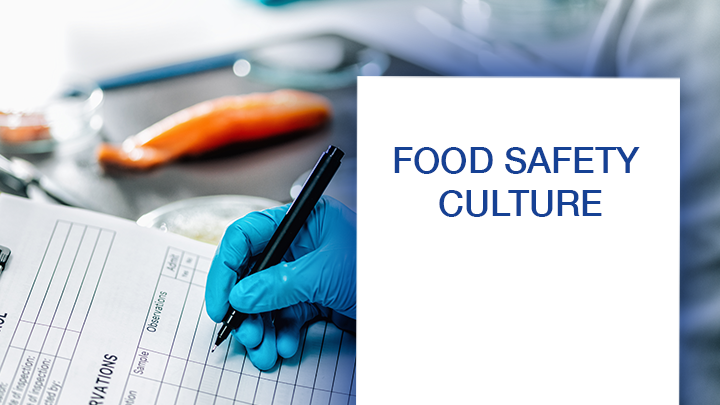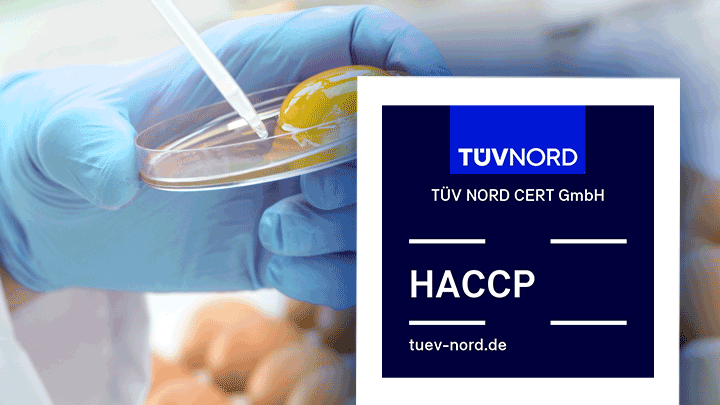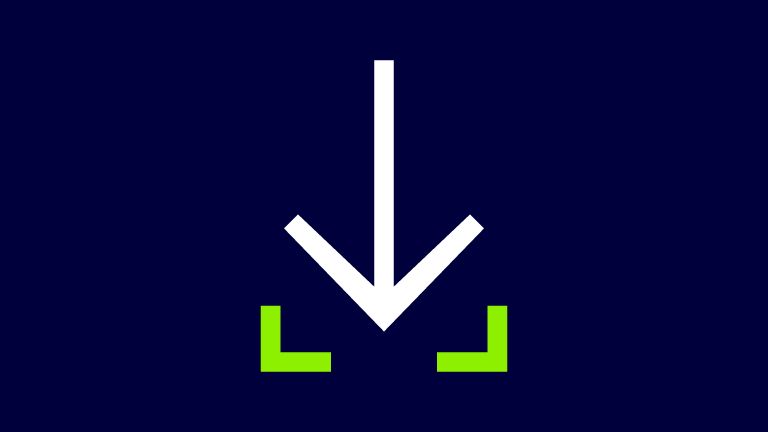Recall of food products for the protection of consumers
Through notices at cash registers, newspaper articles or via social media, consumers find out: "Product xy is being recalled, it is contaminated with germs, viruses or bacteria and can lead to health problems. Approximately 100 such food warnings were issued in 2019, resulting in horrendous costs and damage to the reputation of manufacturers (source: test.de).
Despite all necessary measures and an independent and regular control of one's own production processes, product recalls of food cannot always be avoided. Be optimally prepared for this case and carry out the necessary steps along clearly defined communication channels together with us.
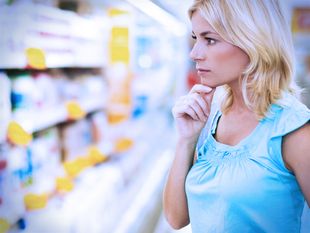
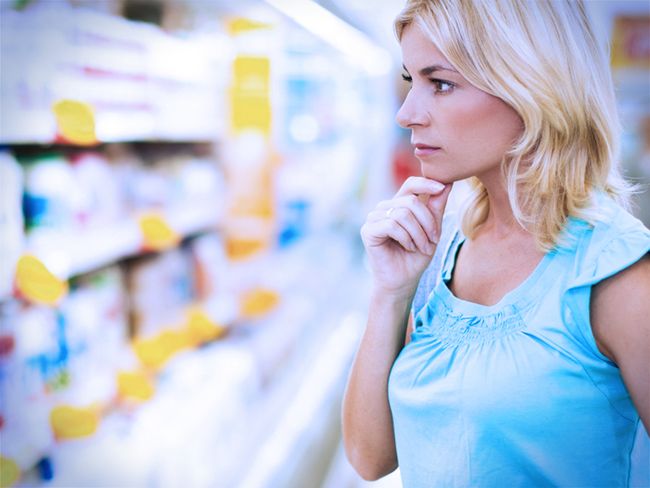


Do you have questions on recall management?
Would you like to inform on an incident?
Recall management for the recall of food
A recall of food or feed products is an essential and targeted measure to remove a defective or problematic product from the market. This is necessary in the food sector as soon as germs, viruses or bacteria, and in rare cases even plastic particles or glass fragments, are detected in the products. Companies often recall products that pose a safety risk to consumers on their own initiative.
Manufacturing companies are obliged to inform the entire public as well as the trade and production partners about the recalled product as soon as possible. This is usually done via a notice in the salesrooms of the respective retailer, a notification via various online media, in daily newspapers, via press agencies or via broadcast media.
In order to avoid a recall as well as damage to one's own reputation and to be able to act quickly in case of an emergency, it is important to review one's own processes, e.g. through a recall management system, and to set up a recall team.
What has to be considered in the case of a recall in cooperation with TÜV NORD CERT?
Are you certified for compliance with one or more food safety standards by TÜV NORD CERT? In the event of a recall or withdrawal, we are obliged to check the integrity of the certificate in question. In order to assess the current situation, we require important information from you regarding the incident by e-mail. Please download the form provided above to inform us about the incident.
Contacting TÜV NORD CERT is mandatory in the following cases
If a food with a safety risk is already in circulation, it should be withdrawn from circulation as soon as possible.
If the affected food and feed has not yet been distributed to consumers, a so-called withdrawal takes place. A withdrawal is an event that may lead to the manufacture or supply of unsafe, illegal or non-compliant products. In this case, manufacturing companies actively ask their trading partners not to sell these foods and not to put them on sale elsewhere.
The situation is different in the case of a recall, as unsafe food can already be purchased in shops. In the case of a recall, consumers must be publicly informed about corresponding safety risks.
As a manufacturing company, you are obliged to contact TÜV NORD CERT in the following cases:
- Product recall
- Product withdrawal
- Product recall due to official order for reasons of food safety and/or fraud
- Product withdrawal due to official order for reasons of food safety and/or fraud
- Visits by health authorities resulting in notifications and/or penalties by the authorities.
Deadlines and steps within the food recall feedback process
Within three days of the occurrence or initiation of the incident, you are required to report the incident information to us.
The information required to assess the situation is as follows:
- Certified standard (e.g. BRC / IFS etc.)
- Certificate registration number (see certificate)
- Date on which the withdrawal / recall was initiated
- Reason for the withdrawal / recall
- Name of the products that were taken back / recalled
- Immediate action
- Cause of the withdrawal / recall was based on supplier or your company
Within seven days of the event occurring, you must send further documents to TÜV NORD CERT. These include:
- Process protocol for crisis management
- Cause of the recall / withdrawal
- Affected customers
- Cause analysis
- Corrective and preventive actions taken
Optionally, you can send us details of the crisis management or other information relevant from your point of view.
FAQ on food recall for manufacturing companies
In the European Union, the Rapid Alert System for Food and Feed (RASFF) coordinates the recall of food. Information on health threats from food or feed is exchanged via the online platform "iRASFF" (interactive RASFF) and enables members to act quickly and in a coordinated manner. Short reporting channels and clear hierarchies enable the rapid flow of information.
Other countries outside the EU have their own recall policies and procedures. Therefore, in the event of a food risk or product recall, it is important to be familiar with the food recall laws and regulatory actions of the respective countries. This applies to all countries in which you operate.
Recall management is a procedure for dealing with incidents and possible emergency situations affecting food safety, quality and legality.
As a food or feed manufacturer, you are obliged to withdraw products from the market that pose a safety risk to consumers or have an impact on food safety, quality and legality. With your own recall management, you can optimally prepare for a product recall or withdrawal and initiate preventive measures.
Ensure already in product development and procurement that you only place safe products on the market and collect information on possible product defects or types of use. In addition, systematically assess indications of risks and adapt your products accordingly or, if the food is already on the market, carry out a recall or withdrawal.
As a food producer, you are responsible for informing your customers about the withdrawal and recall campaigns. In the event of a recall, use media such as daily newspapers, news on (local) radio, social media channels or notices in shops. The competent authorities of the federal states closely monitor your recall measures.
As your certification body, we are legally obliged to investigate all incidents that affect the integrity of a certificate. We therefore carefully check the documents you send us. Depending on the test result, the TÜV NORD CERT certification body decides whether an on-site audit will take place again. If necessary, this will be carried out unannounced.
As soon as you detect germs, harmful substances or foreign bodies in your products in the course of internal inspections, or if you are informed of defective goods by food inspections or even by consumers, you are legally obliged to inform customers and the relevant supervisory authorities about these incidents. This obligation applies to food manufacturing companies as well as to companies that, for example, carry out broker activities or to traders and distributors.
Recall teams are part of your recall management and are preventively prepared for their tasks in case of a food recall. Optimally, your recall team consists of experts from different operational departments, e.g. production, production monitoring, quality management, purchasing and sales. They should be permanently available and have the authority to initiate the incident handling process in a timely manner.
In addition, it helps to have an individual recall plan for your company that defines the necessary steps as well as upcoming tasks and responsibilities in case of a recall. This should include:
- Information about affected products (product groups, batch numbers, etc.)
- Immediate sales stop of the affected product
- Information to partners, customers and suppliers as well as to associations
- Information to the national market surveillance authority as well as to the countries of distribution
- Information to consumers via relevant media
As a certification body, we check your existing certificates and carry out unannounced audits on site if necessary. The competent authorities also carry out random checks to see whether the recalled products are still in circulation. If this is the case, both trading and manufacturing companies face considerable fines.
